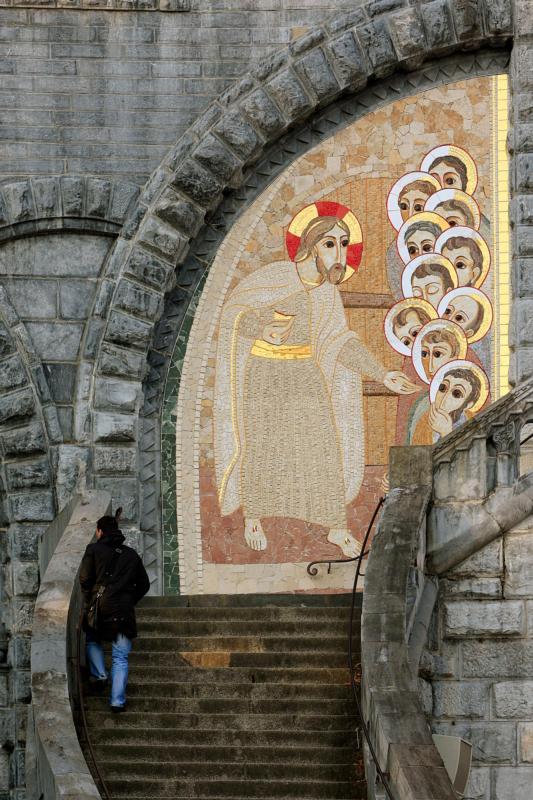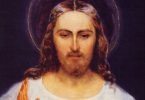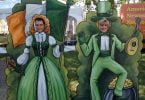
A depiction of the Risen Christ appearing to his disciples is seen in a mosaic by Centro Aletti at the shrine in Lourdes, France. (CNS file photo/Nancy Wiechec)
by Olivia Martin
This weekend I had the opportunity to have dinner and hours of conversation with friends, one of whom was visiting from New York City. His name is Father José, and he is a member of the Priestly Fraternity of the Missionaries of Saint Charles Borromeo.
We met a few years ago through the lay movement Communion and Liberation.
But I didn’t know him very personally until March of this year, when he told some friends and me a bit about his life.
Father José was a priest and teaching in Boston when the 2002 crisis rocked the church.
After the shock, he said that the church was bent on child sexual abuse never happening again.
So, in response, every single priest in Boston left his teaching position — except Father José.
“It was true they had eliminated the possibility of a child being sexually abused by a priest in school,” he said.
“But who was teaching their children?”
It’s been months since I heard him pose that question, but I think about it often.
It provokes me to go deeper into what is actually happening.
It provokes me to ask what is at stake if we commit ourselves to eliminating the possibility that one might misuse his freedom.
It provokes me to ask if transparency and a perfect clergy is really what will help the church reestablish her credibility.
It makes me wonder, in the face of this second wave of crisis, if more policies or actions are truly the answer.
Recently, some friends and I have started looking to our history, all of our history, in the church for enlightenment.
When I think about it, Christ’s choice in the apostles as friends, not to mention bishops and first pope, couldn’t be more upsetting, scandalizing and potentially discrediting to an onlooker.
St. Peter was a hot-headed coward. St. Paul was a murderer. Even the betrayer Judas was hand-picked by Christ as his friend.
These men and those in the church today who inflict harm make clear that the church is not the sum of its faithful or deviant clergy. Nor its good or abominable laity.
But if the church isn’t determined by her members, what criteria can we use?
What changed Peter and Paul (and what Judas missed) wasn’t an idea or a policy.
It was an event with a new kind of man, a man more alive than any they had met.
A presence happened to them; they encountered Another who corresponded to the depths of their being yet had a human face.
They encountered Christ, present.
He became the measure of their lives.
It was impossible, but it happened — and still happens because He is present.
This is the Christian proposal. This must be the starting point of all of our questions, answers and actions: Christ is present.
I think this moment in our history is a beautiful opportunity.
We are being provoked to ask together: what is the church?






